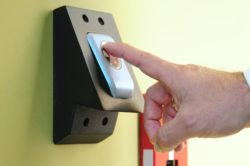Top Class Actions’s website and social media posts use affiliate links. If you make a purchase using such links, we may receive a commission, but it will not result in any additional charges to you. Please review our Affiliate Link Disclosure for more information.
In Illinois, a Burger King franchisee has been hit with a class action lawsuit taking issue with the company’s employment practices.
The Burger King franchise class action lawsuit was filed by Diana Sciortino, a former employee of Tri City Foods, the second largest Burger King franchisee in the country. She has filed her claim against both the nationwide company and its Illinois operator, Tri City Foods of Illinois LLC.
Sciortino says that she worked at two Burger King locations between August 2016 and February 2020. Allegedly, she would often work more than 40 hours in a workweek, which should qualify her for overtime under Illinois law.
Hourly workers are entitled to one and a half times their hourly wages for every hour worked above 40 in a given week, per the Fair Labor Standards Act, notes the Burger King class action.
However, she says that her employer would alter her timecard to make it appear as if she had worked less than 40 hours.
The Burger King class action lawsuit asserts that Tri City Foods intentionally miscalculates workers’ hours to make sure that it seemed as if they had worked under 40 hours per week, in an effort to avoid paying them overtime.
The Illinois wage and hour class action lawsuit goes on to claim that this miscalculation of wages violated both federal and Illinois law, and asserts that the company’s violation of the law was “willful, arbitrary, unreasonable and/or in bad faith.”
According to the Burger King class action, this was a widespread practice within the company that affected not only Sciortino, but her colleagues and workers at other Burger King locations owned by Tri City Foods. She claims that this practice financially damaged workers, as they were denied wages and overtime to which they were entitled.
For her wage and hour claims, Sciortino seeks damages on behalf of herself and all hourly workers employed by Tri City Foods who worked for the company in the last three years.
In addition to claiming that Tri City Foods violated wage and hour law by failing to pay their employees for all hours work, the Burger King franchisee class action lawsuit also takes issue with Tri City Food’s practice of collecting employee fingerprints.

Allegedly, the company used these fingerprints to record an employee’s time, as the employee was required to scan their fingerprint at the beginning and end of each shift.
However, the Burger King class action says the way that the company executed this practice violates the Illinois Biometric Information Privacy Act.
The BIPA was enacted to protect individuals from privacy violations in an era of advancing technology. The law reportedly regulates the collection, storing, and destroying of information related to biometric identifiers. Biometric identifiers are identifying characteristics unique to an individual’s physical being, like fingerprints, face scans, eye scans, and DNA records, explains Sciortino.
According to the Burger King class action lawsuit, the Illinois law requires those who collect biometric information to first gain the consent of the person whose biometric information they are collecting.
The collector must also inform an individual of the specific purpose of collecting the information, and how long the information will be collected, stored, and used, says the Burger King class action lawsuit. In addition, the collector must also produce information about how and when the data will be destroyed, and make that information publicly available.
However, Sciortino claims that her employer did none of these things. She says that at the beginning of her employment, she was required to provide her fingerprint, but was not asked for her consent. Allegedly, she was also not provided with any information about how the company would collect, store, or destroy the data.
For her BIPA claims, Sciortino seeks to represent a Class of all hourly Illinois workers employed by Tri City Foods in the last three years.
A previous Burger King class action lawsuit similar argues that the Illinois franchisee incorrectly calculates hours worked in a way that short changes employees. Like Sciortino, the workers claim that the company violated the Illinois Biometric Information Privacy Act by collecting employees’ fingerprints without their consent.
What do you think of Illinois’ Biometric Information Privacy Act? Share your thoughts in the comments below.
Sciortino is represented by Jason T. Brown of Brown LLC.
The Burger King Wage and Hour, BIPA Violation Class Action Lawsuit is Diana Sciotino v. Tri City Foods Inc., et al., Case No. 1:20-cv-01980, in the U.S. District Court for the Northern District of Illinois.
ATTORNEY ADVERTISING
Top Class Actions is a Proud Member of the American Bar Association
LEGAL INFORMATION IS NOT LEGAL ADVICE
Top Class Actions Legal Statement
©2008 – 2024 Top Class Actions® LLC
Various Trademarks held by their respective owners
This website is not intended for viewing or usage by European Union citizens.
















3 thoughts onBurger King Class Action Alleges Labor, Privacy Violations
Add
Add
Please add me